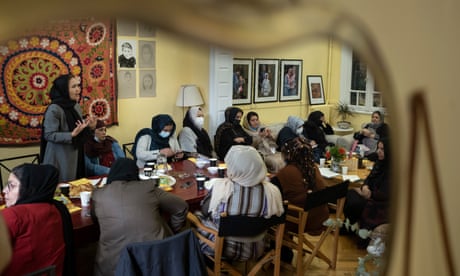It has been described as Afghanistan’s brain drain, after the Taliban’s return to power last year precipitated an exodus of politicians, academics and journalists who fled in anticipation of reprisals and censorship under the militant group’s draconian regime.
For a small group of Afghan women, however, the work of running the country has not stopped, even in exile.
Fawzia Koofi is a former member of Afghanistan’s parliament and was its first female deputy speaker. Despite moving several times since leaving the country in August last year, the 47-year-old has kept talking with her former colleagues and contacts in international governance, working to find solutions to the political and humanitarian crisis in Afghanistan.

“They [the Taliban] don’t know how to govern and they don’t respect the social mosaic of Afghanistan, which makes them more fragile, but is also hurting Afghans,” says Koofi, who has been working in Europe and the US with member states across the UN for the past year. “I don’t believe they will last very long, but I am concerned over the damage they inflict on Afghanistan’s social and political fabric.”

The work of Koofi and fellow Afghan women has helped to fill the gulf that exists between the Taliban, which are operating under severe sanctions and are domestically consumed with an economic crisis and enforcing gender apartheid, and the international community.
“We call them the ‘group of six’,” says Sarah Douglas, of UN Women, referring to a core group of Afghan women who have been instrumental in steering international policy towards their country over the past year. The group also includes Asila Wardak, a former diplomat and one of the founders of the Afghan Women’s Network; Sofia Ramyar, the former executive director of the youth-led organisation Afghans for Progressive Thinking; and the journalist Anisa Shaheed.
Read full story on The Guardian
